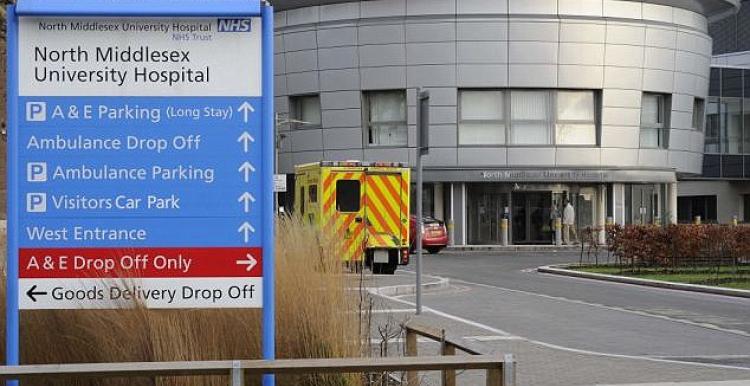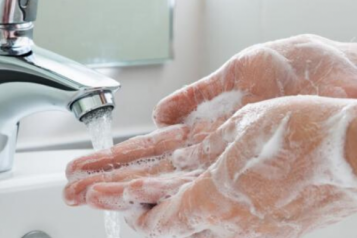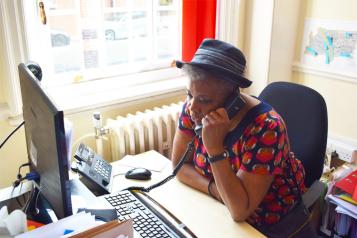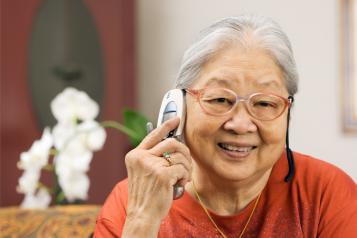Coronavirus: Information about changes to NHS services

You must follow the government advice on hand-washing and stay at home unless you need to go out for essential reasons. If you have to leave your home, keep at least two metres away from other people.
Read the latest public health advice for you and your family:
We want to update you about changes the NHS has had to make to services, to help them deal with the coronavirus pandemic. These temporary changes will help the NHS to focus all their efforts and resources in the best way to tackle the Covid-19 outbreak.
GP services
If you think you have Covid-19 symptoms, you should always use the 111 online service for advice. If you cannot get online, telephone 111. Do not go to your GP surgery as this may lead to the virus spreading further, including to practice staff.
Haringey GP practices are focused on helping their patients who have Covid-19 and are remaining open, but are not operating normally. If you need a GP appointment about another matter, you should stay at home and ring the practice in the first instance. Most appointments will be offered via telephone or online.
We know that some GPs and their staff are likely to become unwell or to have to self-isolate. This will put general practices under pressure. To deal with this, local practices are working together in networks to support each other. It is possible that if you need to see or speak to a GP, you will be given an appointment with a different doctor or practice to the one you usually see.
Haringey GP Hubs
Haringey GP Hubs continue to operate at this time, Monday to Friday: 6.30pm to 8.30pm, at weekends and on Public Holidays from 8.00am to 8.00pm on 0330 053 9499.
GP Hubs offer the same service as your usual GP and anyone registered with a GP in Haringey can call. GP hubs are staffed by experienced GPs and nurses and offer assessment for adults and children with minor injuries and illnesses.
If you think you have Covid-19 symptoms, you should always use the 111 online service for advice. If you cannot get online, telephone 111.
Hospitals
Our local hospitals are focused on treating people who have Covid-19. Do not go to hospital if you think you have Covid-19 symptoms. You should always use the 111 online service for advice. If you cannot get online, telephone 111. You should only call an ambulance in what you think is a life-threatening situation.
Operations and surgery that are not clinically urgent or emergencies are being delayed as doctors and nurses need to focus on dealing with the pandemic.
Our local hospitals have dedicated areas for treating Covid-19 patients, to keep them separate from other patients. The hospitals are working closely together so that if one hospital has a high number of cases, patients needing a bed may be transferred to another local hospital.
Hospital visitors
To help prevent the spread of infection, visiting is not allowed in our hospitals except under very exceptional circumstances, including:
- for a patient at end of life
- one regular carer for a patient with additional needs, such as a patient with dementia
- one parent/guardian for a child
- one birth partner.
Emergency care for patients who do not have Covid-19 symptoms
Emergency care for patients whose condition is serious but not related to Covid-19 will continue as normal. In a life threatening emergency, you should call 999 as usual.
Outpatients
During this period, outpatient appointments are not being offered except in the most urgent cases. The hospital will contact patients and some follow-up appointments may be by telephone.
The use of face coverings when attending or visiting hospitals
People infected with COVID-19 can have very mild or no respiratory symptoms (asymptomatic) and can transmit the virus to others without being aware of it.
From Monday 15 June 2020, and in line with recent recommendations from the World Health Organisation, you will need to wear a face covering when you go to a hospital as a visitor or outpatient.
What does this mean?
We can all play a role in reducing the spread of coronavirus and keeping our hospitals safe. If you are going to hospital as a visitor or for planned outpatient care, it is important that you wear a face covering at all times. This is for your safety and the safety of other patients and staff.
Face coverings can be cloth and/or homemade, and advice on how to wear and make one can be found on the government website. Face coverings worn as part of religious beliefs or cultural practice are also acceptable, providing they are not loose and cover the mouth and nose.
Plan in advance and take a face covering with you whenever possible. If you do not have one available when you go to a hospital, please see a member of staff on arrival and they should be able to provide you with one.
If you are currently shielding and have been provided with a surgical face mask for your appointments, please continue to use this. If you have not been provided with a surgical face mask, you should wear a face covering.
For some people, wearing a face covering may be difficult due to physical or mental health conditions. In these instances, other measures will be considered on a case by case basis, for example timed appointments and being seen immediately on arrival.
If you are a deaf or hearing impaired, the hospital should have a range of communication options to ensure that they can communicate effectively with you. This might include the use of clear masks where possible, as well as visual aids such as writing things down, speech to text apps and sign language.
All visitors will be expected to comply with existing social distancing and hand hygiene measures in addition to the face coverings while in a hospital setting.
How can you help?
The best way in which you can help is to follow the public health advice. Wash your hands regularly, every time you enter or leave your home, and at least once an hour. Avoid all unnecessary travel unless you are a critical worker.
Work from home if possible. If you have to go outside for any reason, follow the guidance on social distancing. If you have symptoms of Covid-19, you must stay at home for at least 7 days. If a member of your household has been infected but you have not been, you should stay at home for 14 days.
Please also follow this advice on how to use NHS services. The 111 online service should be the first place you go for advice: https://111.nhs.uk/covid-19


